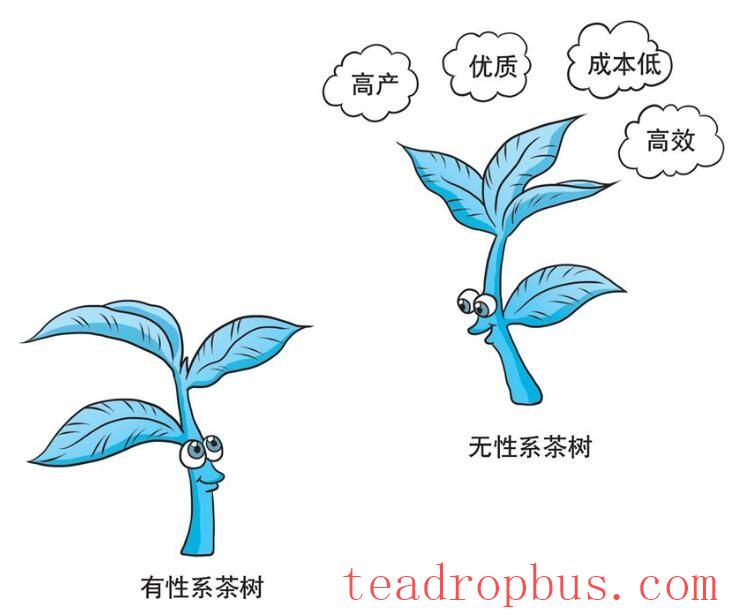Tea varieties come in two types: one is the sexual variety, also known as a population variety, which refers to varieties propagated through tea seeds over generations. There are significant differences in traits among individuals of these varieties. The other type is the clonal variety, which is propagated asexually (through cuttings, layering, etc.) over generations, and the traits among individuals of these varieties are relatively consistent.

Compared with sexual varieties, clonal tea varieties have the following advantages:
(1) High Yield
Under the same growing conditions and management practices, clonal tea varieties generally increase yield by more than 10% compared to ordinary varieties, making it possible to achieve high yields by choosing to plant clonal tea varieties.
(2) Superior Quality
The color, aroma, taste, and appearance of tea are primarily reflections of the chemical characteristics and external morphological features of new shoots of the tea plant, i.e., they are influenced by the inherent characteristics of the variety itself. Different types of tea, especially premium teas, require different raw materials with distinct characteristics for processing to reflect the quality style of that particular tea or premium tea. Additionally, the consistency of Bud and Leaf traits in clonal tea varieties facilitates the promotion of standardized processing techniques and ensures consistency and stability in tea quality.
(3) Lower Costs
The vigorous and uniform growth of new shoots, robust buds and leaves, high density, and suitability for mechanized operations in clonal tea varieties can reduce picking and other production costs.
(4) Higher Efficiency
Due to their high yield and superior quality, combined with lower production costs, clonal tea varieties offer significant economic benefits, generally increasing efficiency by more than 2,000 yuan per mu compared to common varieties.